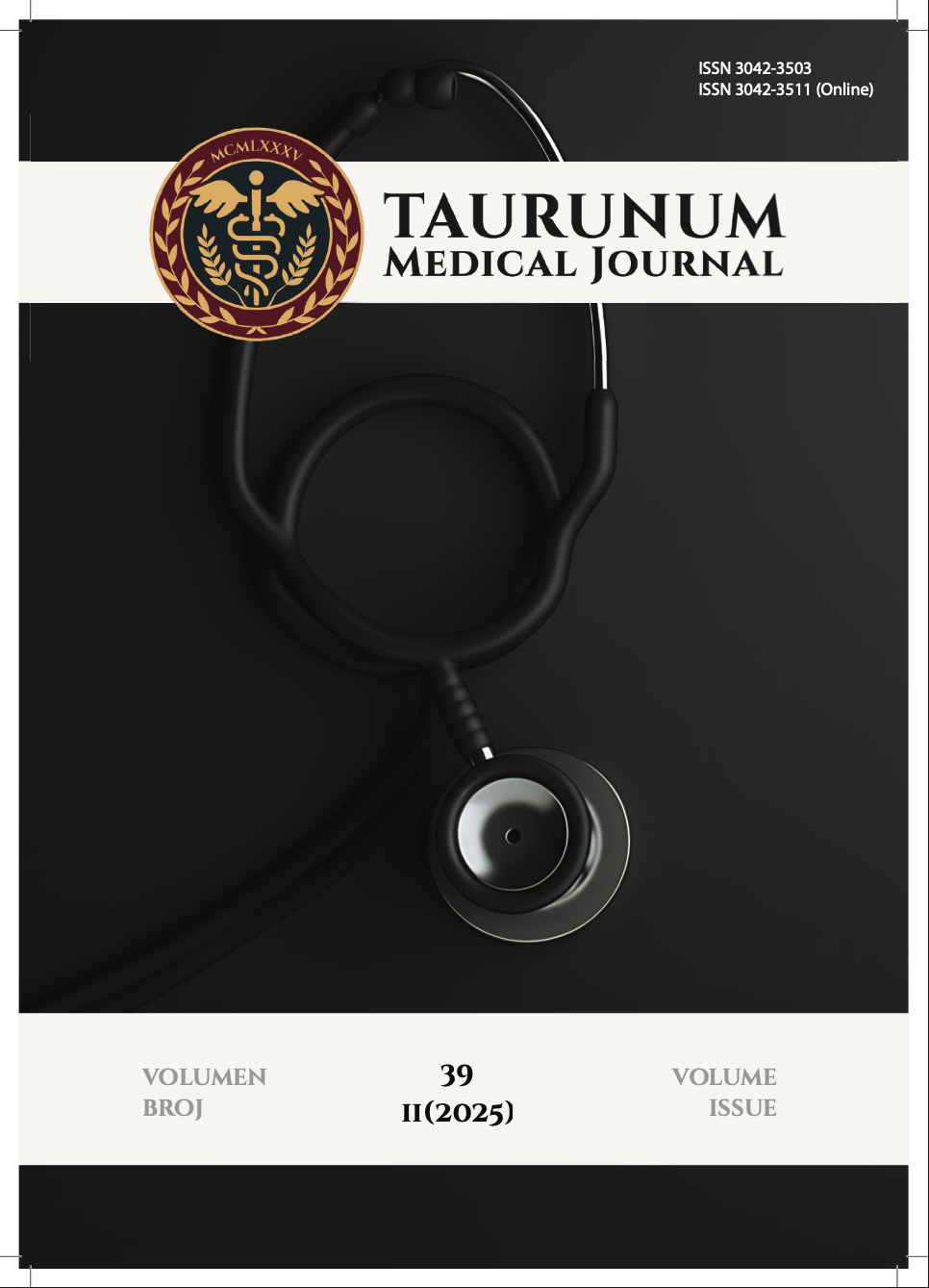Current issue

Volume 39, Issue 2, 2025
Online ISSN: 3042-3511
ISSN: 3042-3503
Volume 39 , Issue 2, (2025)
Published: 12.11.2025.
Open Access
All issues
Contents
01.01.2021.
Original Article
Gastrointestinal bleeding and prevention of complications: the role of the nurse
The aim of this study was to determine the importance of health care in the treatment of patients with gastrointestinal bleeding. Bleeding in the digestive tract is divided into bleeding from the upper and bleeding from the lower part of the digestive tract. Caring for patients with severe bleeding is a serious challenge. The role of the nurse and the way the patient approaches the patient in terms of care, but also recognizing the development of possible complications, is very important. Descriptive surveys were applied using a questionnaire as a research instrument. The study found that females are more represented than males, that the level of education is high and that most employees have been working for more than 5 years. The analysis of questionnaires from the second group of questions related to professional issues related to bleeding from the gastrointestinal tract showed that 80% (16) of respondents were thoroughly acquainted with the types of bleeding from the digestive tract, and that 70% (14) of respondents Bleeding from the digestive tract is influenced by hereditary and environmental factors, so that 65% of respondents know in detail and apply the nursing procedures used in cases of gastrointestinal bleeding. 95% answered that the nurse is obliged to fully recognize the symptoms of bleeding and possible complications, and that 60% of the respondents were fully acquainted with the procedures aimed at reducing pain in patients with gastrointestinal bleeding. All 100% of the respondents thought that the nurse was fully acquainted with the symptoms and signs of bleeding, with the procedures of diagnosis and treatment, as well as with dietary measures. 85% of respondents were aware of care measures related to reducing fear and insomnia in patients. 80% of the respondents thought that they had enough knowledge to provide care for patients with gastrointestinal bleeding, and 97% of the respondents thought that the patients were not enough, or not educated at all.
Sava Mitic, Goran Petrovic, Ljiljana Isakovic, Sanja Marjanovic
01.12.2021.
Original Article
Chemotherapy: the role of the nurse in care and therapy
The aim of the research was to determine the profile of employed nurses involved in the care of patients receiving chemotherapy and to assess the level of specific education for this type of care. Specialized education, preparation and training are required for oncology nurses who administer chemotherapy and other dangerous anti-cancer drugs to ensure a safe level of care. An observational survey of the survey type was applied, and the results were presented by descriptive statistical methods. The study sample consisted of 20 respondents, nurses and technicians from the Institute of Oncology and Radiology in Belgrade. The research was conducted in the period from May 1 to 20, 2019, at the Institute of Oncology and Radiology in Belgrade. The profile of nurses in our study was that most nurses are traditionally female, with an average age of 36-55 with a high school diploma. Nurses have sufficient knowledge about malignant diseases (65%), 80% are well aware of the side effects of chemotherapy, 55% of nurses provide psychological support to patients with malignant diseases, and 75% assess pain in patients. A slightly higher percentage of 65% of nurses who devote enough time to acquainting patients with their disease and the purpose of treatment. Half of the respondents go to trainings regularly. Based on the results of the research, we can conclude that most nurses have sufficient knowledge about malignant diseases, but the number of those who need additional education is not negligible, to which additional attention must be paid.
Goran Petrovic, Vukasin Delibasic



